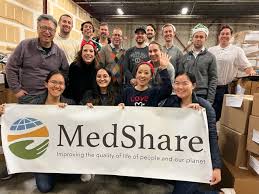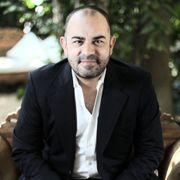by Hazel Anna Rogers for the Carl Kruse Blog
In December of 2020, the World Health Organization (WHO) released an article stating that, worldwide, 1 in 4 healthcare facilities had no water services; 1 in 3 did not have access to hand hygiene (where care was provided); 1 in 10 had no sanitation services at all; and 1 in 3 did not have the capacity to safely segregate waste.
It is not easy for us to imagine a place that lacks such simple necessities as soap, toilets, and water. Rather, it is impossible. We cannot understand what we have never known, and will likely never know. I write this article from a warm room in a warm home with running water, soap, and a clean bathroom. I am sure that you are reading this article from a place not dissimilar to that which I describe.
It takes real mental toil to try and comprehend a life that does not have access to all of these things so readily, and it takes physical toil to fight for a world where all lives have access to these things. 25 years ago, nonprofit entrepreneur A. B. Short and (retired) businessman Bob Freeman took on this physical toil by speaking out publicly against the mindless discarding of thousands of tons of medical resources in the US.
Short and Freeman stated their environmental concerns about the wasting of these medical supplies, and noted the positive change that could come about if these items were redistributed to hospitals in developing countries who were in need of the basic medical items that were being tossed out by hospitals nationwide.
That same year, Short and Freeman managed to organise a shipment of a 40-foot container of medical supplies out to Costa Rica, where Hurricane Mitch, the second-deadliest Atlantic hurricane on record, had just caused massive structural damage. This solo-shipment was the first beacon, the first hope sent out to sea by a charity that would come to become one of the most important non-profit health organisations in the world: MedShare. And it all started with a single shipping container. How much we underestimate that first act, that initial decision to really take action. But that first shipping container was all it took for a movement to be born.
Two years later, in 2000, MedShare secured their first grant of $250,000 from the Robert W. Woodruff Foundation. In 2009, a gift of $9,000 was presented to MedShare by the Coca-Cola Africa Foundation, a sum they used to send over 100 40-foot shipping containers filled with medical supplies and equipment throughout the year of 2010, 28 containers of which were provided to Haiti after their devastating earthquake along with 80 medical mission teams, emergency biomedical equipment training, and repair efforts. More recently, in 2022, MedShare was instrumental in combatting the destruction in Ukraine, providing over $8 million in aid with PPE, surgical equipment, primary care, and first aid supplies. This year, MedShare managed to surpass $3.5 million in funding provisioned to their medical response teams.

MedShare is a humanitarian aid organisation. As defined by Wikipedia, Humanitarianism is an active belief in the value of human life, whereby humans practice benevolent treatment and provide assistance to other humans to reduce suffering and improve the conditions of humanity for moral, altruistic, and emotional reasons. MedShare was born to improve the worlds we cannot see, to improve the lives of people we do not know, through the initially simple act of redirecting items that would have found themselves lost in landfill. That first 40-foot shipping container was the beginning of a fervent humanitarian effort that has not ceased to fight right up to the present day. To date, MedShare have donated $295 million in humanitarian aid, have equipped 964,965 medical professionals, and have served 33 million people in 117 countries.
I ask you, as you sit here reading this, to consider donating to MedShare. Any donation, whether a donation of money, time, cryptocurrency, stock, real estate, or DAF, is a donation that will directly impact MedShare’s ability to deliver medical supplies and equipment to underserved populations and train medical staff. We are all here on this earth, together, and though our own worlds seem small, we do indeed have the ability to change the lives of people we cannot see. And that is a wonderful thing.
You can read more about MedShare on https://www.medshare.org/.
=============
The Carl Kruse Nonprofits Blog Homepage.
Contact: carl AT carlkruse DOT org
Other articles by Hazel include: A Look At Spiritual Capitalism, Dark Suburbia and the New York Marine Rescue Center.
You can also find Carl Kruse on Buzzfeed. Carl Kruse Bio.
